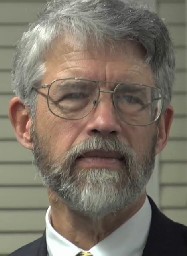ITER NEWSLINE
85
John Holdren elected to the Royal Society
Krista Dulon
John Holdren elected to the Royal Society

John Holdren
This prestigious national academy of science of the British Commonwealth is an independent body, founded 350 years ago to promote the advancement of science; illustrious members have included Isaac Newton, Charles Darwin, Albert Einstein, and Stephen Hawking. "Our new Fellows are at the cutting edge of science worldwide," said Martin Rees, President of the Royal Society. "Their achievements represent the vast contribution science makes to society."
John Holdren is an influential scholar on energy, climate and nuclear non-proliferation. Trained in theoretical plasma physics, space science and engineering, he has run the science, technology and public policy program at Harvard University since 1996. He worked as a theoretical plasma physicist at Lawrence Livermore National Laboratory, concentrating on fusion energy and its environmental impacts. He was a member of the President's Council of Advisors on Science and Technology from 1994 to 2001 and chaired two subcommittees that addressed energy research. A 1995 subcommittee review identified fusion energy as an attractive clean energy option. He has also been active in the arms control and nuclear non-proliferation policy issues.
"Holdren has put his scientific and political judgements to enormous effect in furthering deliberations on international security and arms control," the Royal Society noted in its announcement, stressing in particular Holdren's role as a leader of the Pugwash Conferences on Science and World Affairs that bring together scholars and public figures dedicated to reducing the dangers from nuclear weapons and armed conflict. Holdren gave the acceptance speech for the 1995 Nobel Peace Prize awarded to the Pugwash Conferences, in which he served as Chair of the Executive Committee from 1987 to 1997.
Source: OSTP press release / Physics Today article Feb 2009
return to Newsline #85


